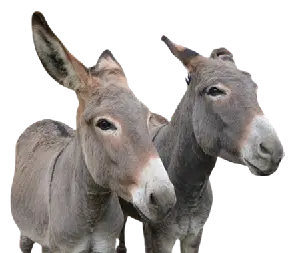The Donkey and Its Golden Saddle
Published:
 Across various cultures, the saying “The donkey is still a donkey” underscores the idea that outward appearances cannot alter the true nature of something. Variations of this sentiment include “They dressed the donkey with a golden saddle, but it’s still a donkey” and “An ass with a golden saddle doesn’t become a horse.” These expressions emphasize the importance of valuing substance over appearance, reminding us that no matter how elaborate the exterior, the essence remains unchanged. This principle is especially relevant when reflecting on humanity, power, and privilege. A fancy title or great wealth does not inherently make someone a better person or more valuable than others who lack those things.
Across various cultures, the saying “The donkey is still a donkey” underscores the idea that outward appearances cannot alter the true nature of something. Variations of this sentiment include “They dressed the donkey with a golden saddle, but it’s still a donkey” and “An ass with a golden saddle doesn’t become a horse.” These expressions emphasize the importance of valuing substance over appearance, reminding us that no matter how elaborate the exterior, the essence remains unchanged. This principle is especially relevant when reflecting on humanity, power, and privilege. A fancy title or great wealth does not inherently make someone a better person or more valuable than others who lack those things.
It’s all too common for individuals in positions of authority to believe that their status or wealth automatically imbues them with greater worth than those around them. They may dress themselves up in fancy clothes, surround themselves with luxury, and demand respect and admiration from others. However, despite all of this, they may still lack the fundamental values of empathy, compassion, and respect for others that define our humanity.
The metaphor of the donkey with a golden saddle serves as a reminder that no amount of external dressing can truly change who we are at our core. Just as the donkey remains a donkey no matter how it is adorned, a person who lacks the value of humanity does not gain value simply by dressing, rank, or position. Consider a scenario where someone is given a position of leadership but lacks the necessary skills and qualities for the role. Whether they wear a suit or carry an impressive title, their effectiveness as a leader depends on their actual abilities and leadership qualities. A person without the essential skills is like a donkey with a golden saddle – the outer appearance doesn’t change the underlying reality.
In the academic world, a student may earn high grades and accumulate numerous certificates, resembling a donkey adorned with a golden saddle. However, the real measure of education is not the external accolades but the depth of understanding and knowledge. A person may look successful on paper, but without genuine understanding, they remain akin to a donkey, no matter the accolades.
This is an important lesson for everyone, but it’s especially relevant for those in positions of power or privilege. Schools and other educational institutions can provide knowledge and skills that can help to alleviate ignorance, but they cannot fundamentally change a person’s character or values. The “asshole” may become more knowledgeable, but they will remain an “asshole” until they develop a deep understanding and appreciation for the humanity of others.
In conclusion, the metaphor of the donkey with a golden saddle is a powerful reminder that our external appearances and positions in life do not define our worth as human beings. It’s up to each of us to cultivate the values that make us truly valuable - empathy, compassion, respect, and a deep appreciation for the humanity of others. Only then can we truly claim to be worthy of the positions of power and privilege that we may hold in our society.